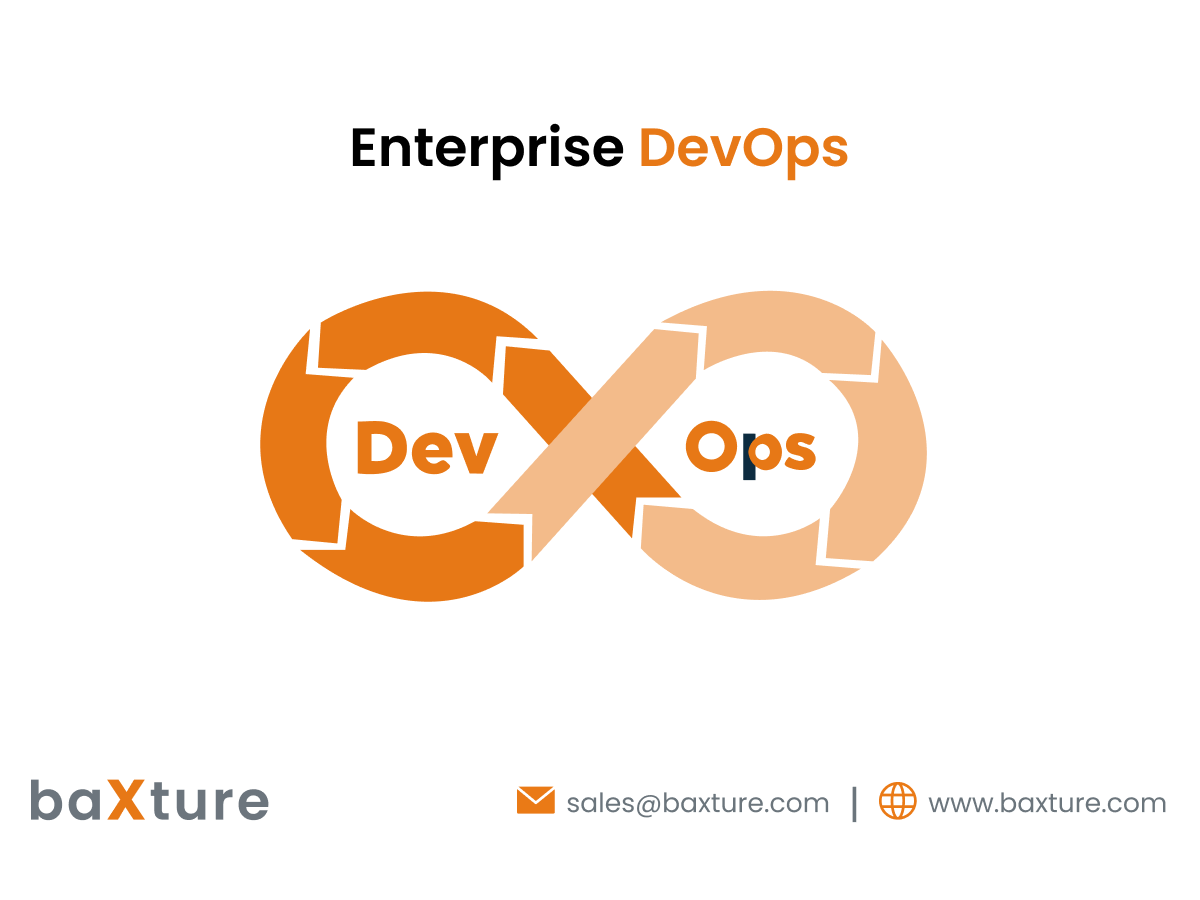Enterprise DevOps Explained

In the ever-evolving landscape of modern business, staying competitive and adaptive is crucial for enterprises aiming to maintain their edge in the market. Enter DevOps – a revolutionary approach to software development and IT operations that has gained significant traction over the past few years. DevOps, short for Development and Operations, is more than just a methodology; it's a culture, a mindset, and a set of practices that redefines how organizations build, deploy, and manage their software systems.
Understanding DevOps
At its core, DevOps is built on the foundation of collaboration and synergy between development and operations teams. Traditionally seen as separate entities with differing objectives, these teams now work together seamlessly to achieve common goals. DevOps emphasizes continuous integration, continuous delivery (CI/CD), and automation to ensure that software changes can be efficiently and reliably pushed to production. This approach not only accelerates the development lifecycle but also leads to enhanced product quality and better customer satisfaction.
DevOps in the Enterprise Context
While the principles of DevOps hold true across organizations of all sizes, enterprises face unique challenges when adopting DevOps practices. The scale of operations, legacy systems, complex regulatory environments, and entrenched organizational structures can complicate the transformation process. However, DevOps aligns perfectly with the objectives of enterprises – scalability, reliability, and innovation. By breaking down silos and fostering collaboration, enterprises can leverage DevOps to achieve agility and competitiveness on a grand scale.
Building a DevOps Culture
Implementing DevOps isn't just about adopting new tools and processes; it's about cultivating a culture of collaboration, open communication, and continuous improvement. A DevOps culture encourages teams to work together, share insights, and learn from failures. Leadership plays a pivotal role in driving this cultural shift, by supporting experimentation, promoting knowledge sharing, and enabling cross-functional teams. Successful enterprises that have embraced DevOps have often demonstrated a strong commitment to nurturing this collaborative ethos.
Key Principles of DevOps Implementation
DevOps implementation is guided by several key principles that underpin its effectiveness. Infrastructure as Code (IaC) allows organizations to automate the provisioning of infrastructure, reducing manual errors and ensuring consistency. Version control systems enable tracking changes to code and configuration, facilitating collaboration and accountability. Continuous integration involves merging code changes frequently, followed by automated testing to catch issues early. Continuous delivery and deployment automate the release process, allowing for swift and reliable software releases. Additionally, continuous monitoring and feedback loops enable teams to gather insights and make data-driven improvements.
DevOps Tools and Technologies
A crucial aspect of successful DevOps implementation is the utilization of appropriate tools and technologies. DevOps tools automate various stages of the software development and deployment pipeline, enhancing efficiency and reducing manual errors. Tools like Jenkins, Docker, Kubernetes, Ansible, and more, facilitate processes such as code integration, containerization, orchestration, and configuration management. Enterprises must carefully evaluate their requirements and choose tools that align with their specific needs and technology stack. Customizing the toolchain ensures that the DevOps approach is tailored to address the organization's unique challenges.
Overcoming Challenges in Enterprise DevOps Adoption
While the benefits of DevOps are significant, enterprises often encounter challenges during the adoption phase. Legacy systems and complex infrastructures can pose hurdles to seamless integration. Security concerns, especially in industries with stringent regulatory requirements, require thoughtful planning to ensure compliance. Resistance to change from entrenched practices and skepticism among stakeholders must also be addressed. Strategies such as gradual migration, establishing clear security protocols, and showcasing incremental successes can help overcome these obstacles and ensure a smoother transition.
Difference between DevOps and Enterprise DevOps
DevOps, as a concept, transcends organizational boundaries, yet its application in enterprise settings introduces unique complexities. Enterprise DevOps involves adapting the core DevOps principles to the scale, diversity, and regulatory demands of large organizations. While the fundamental principles remain consistent, the implementation nuances differ. Enterprises need to balance the need for speed and agility with the requirement for robust governance, security, and risk management. Enterprise DevOps addresses these additional considerations to achieve a harmonious fusion of agility and stability.
Measuring DevOps Success
The effectiveness of DevOps adoption can be quantified through various Key Performance Indicators (KPIs). These metrics provide insights into the impact of DevOps practices on the organization's software development and delivery processes. KPIs might include deployment frequency, lead time for changes, mean time to recovery, and the success rate of deployments. Regularly measuring these indicators allows enterprises to identify bottlenecks, optimize processes, and track improvements over time. A commitment to continuous measurement and analysis is pivotal to achieving sustained DevOps success.
Steps to Get Started with DevOps in Your Enterprise
Embarking on a DevOps journey requires careful planning and a well-structured approach. Here are essential steps for enterprises looking to implement DevOps:
Assess Current State:
Evaluate existing processes, identify pain points, and understand the organizational culture.
Set Clear Goals:
Define achievable objectives for DevOps adoption, aligning them with the enterprise's strategic vision.
Create an Implementation Roadmap:
Develop a phased plan outlining the introduction of DevOps practices and tools.
Build Cross-functional Teams:
Encourage collaboration between development, operations, and other relevant departments.
Select and Implement Tools:
Choose appropriate tools that support automation, integration, and collaboration.
Cultivate a DevOps Culture:
Foster a culture of open communication, experimentation, and continuous learning.
Provide Training and Support:
Invest in training programs to upskill teams and ensure successful tool adoption.
Start Small, Scale Gradually:
Begin with a pilot project to validate the approach before scaling across the organization.
Iterate and Improve:
Continuously gather feedback, measure performance, and refine processes based on insights.
Conclusion
DevOps has evolved from a niche methodology to a fundamental driver of enterprise success. By embracing DevOps principles, organizations can navigate the complexities of modern business environments with agility and innovation. A culture of collaboration, coupled with automation and streamlined processes, enables enterprises to accelerate software delivery, enhance quality, and exceed customer expectations. As the business landscape continues to evolve, DevOps remains a beacon guiding enterprises toward sustained growth, efficiency, and resilience.